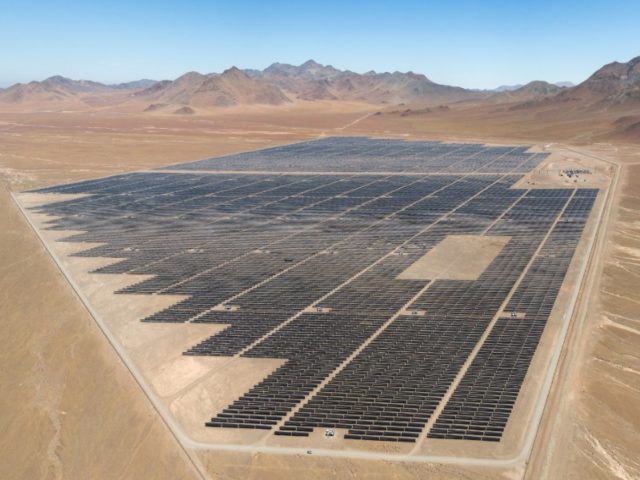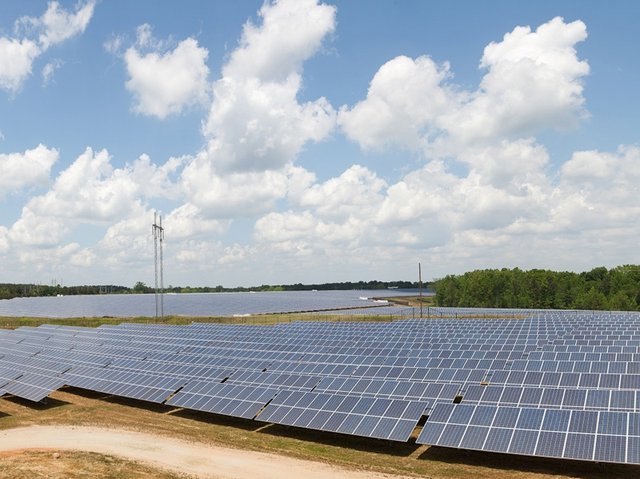In an era where climate change has become an undeniable reality, the shift towards sustainable and renewable energy sources has taken center stage. Solar energy, in particular, has emerged as a shining star in the quest for a more sustainable future. As we stand at the crossroads of the energy transition, solar energy utilities are poised to play a pivotal role in shaping the world’s trajectory toward a greener and more eco-friendly existence. In this article, we delve into the significant role that solar energy utilities are set to play in fostering a sustainable future.
Harnessing Abundant and Clean Energy
At the heart of solar energy’s appeal lies its abundance and cleanliness. Unlike finite fossil fuels, the sun’s energy is virtually limitless and can be harnessed without depleting precious natural resources. Solar panels, often installed in vast solar farms or on rooftops, convert sunlight directly into electricity through the photovoltaic effect. This process produces zero emissions, effectively curbing the carbon footprint associated with traditional energy sources. As solar energy utilities continue to expand their reach, they contribute to reducing the dependency on fossil fuels and mitigating the detrimental effects of greenhouse gas emissions.
Fostering Energy Independence and Resilience
Solar energy utilities empower individuals, communities, and even entire countries to achieve energy independence. By generating their own clean energy, households can significantly reduce their reliance on conventional power grids. This decentralization of energy production enhances resilience in the face of power outages and reduces vulnerability to supply disruptions. Additionally, solar energy systems often include energy storage solutions, such as batteries, that enable users to store excess energy for use during peak demand or when sunlight is not available. This combination of energy generation and storage further strengthens the reliability and stability of the overall energy infrastructure.

Job Creation and Economic Growth
The solar energy sector is not just about reducing environmental impact—it’s also a powerful engine for economic growth. As solar energy utilities expand, they create a wide range of job opportunities, from manufacturing and installation to research and development. Local economies benefit from increased economic activity and job creation, which in turn helps build vibrant and resilient communities. Moreover, the growth of solar energy utilities can attract investments and stimulate innovation, fostering a cycle of sustainable economic development.
Mitigating Climate Change and Preserving Biodiversity
The adoption of solar energy utilities contributes significantly to the global effort to combat climate change. By displacing fossil fuels, solar energy helps reduce greenhouse gas emissions, which are major contributors to global warming. The decrease in carbon emissions not only slows the progression of climate change but also helps protect vulnerable ecosystems and biodiversity. As temperatures rise and habitats shift, many species face extinction; adopting renewable energy sources like solar can provide a lifeline for these threatened ecosystems.
Challenges and Solutions
While the potential benefits of solar energy utilities are undeniable, there are challenges that must be addressed to ensure their effective integration into the energy landscape. One primary concern is the intermittency of sunlight, which can lead to fluctuations in energy generation. However, advancements in energy storage technologies, such as high-capacity batteries and grid management systems, are mitigating this issue by enabling the storage and distribution of excess energy. Additionally, the development of smart grids that can efficiently balance supply and demand further enhances the reliability of solar energy utilities.
Policy Support and Future Prospects
The role of solar energy utilities in shaping a sustainable future is closely intertwined with policy support and incentives. Governments around the world are increasingly recognizing the importance of transitioning to renewable energy sources and are implementing policies to promote the adoption of solar energy. These policies may include subsidies, tax incentives, and regulations that encourage the growth of solar energy infrastructure. If you found this article interesting about the role of solar energy Utilities, it is very likely you will enjoy further reading at Guanabee.
Looking ahead, the prospects for solar energy utilities appear promising. Continued advancements in solar technology, coupled with falling costs of solar panels and energy storage systems, are making solar energy increasingly competitive with conventional sources. As research and development efforts accelerate, we can anticipate even greater efficiency gains, making solar energy an even more attractive and accessible option.
Conclusion
Solar energy utilities stand at the forefront of the sustainable energy revolution, poised to reshape the way we generate and consume power. From harnessing the sun’s abundant energy and reducing carbon emissions to fostering economic growth and promoting biodiversity conservation, their role in creating a more sustainable future cannot be overstated. As governments, industries, and communities rally behind the solar energy movement, we move closer to realizing a world where clean, renewable energy powers our lives, protects our planet and ensures a brighter future for generations to come.




